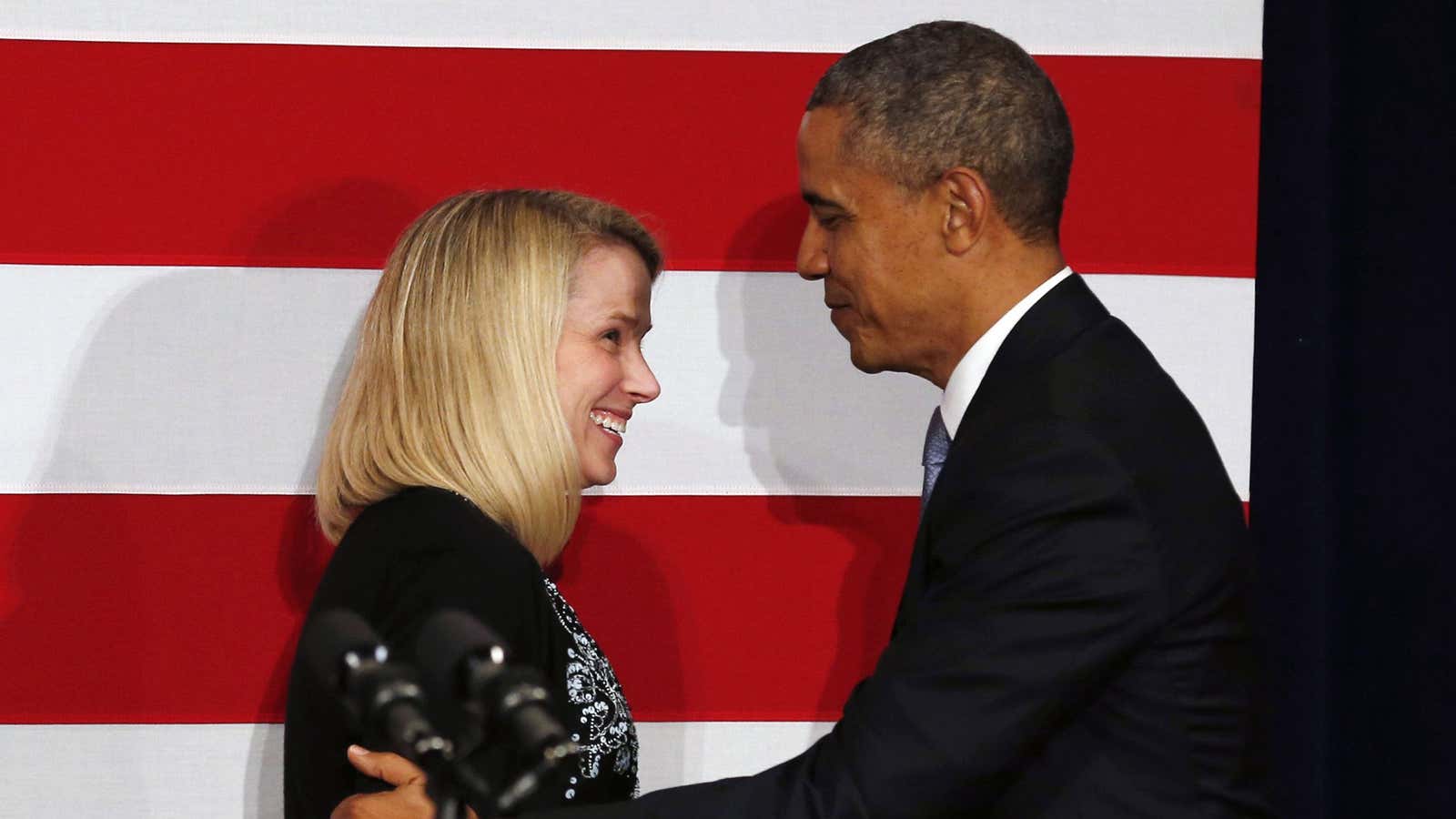Marissa Mayer is about to confront the decisions that will define her tenure at Yahoo. And if she gets them right, her place in America’s corporate history will be secure.
As the breathless, blanket coverage in much of the financial media this week attests, Alibaba, the Chinese e-commerce behemoth, is going public in a matter of days. Yahoo owns about a 23% stake in Alibaba. It has pledged to sell roughly a third of that into the IPO and will realize up to $8 billion in cash proceeds.
This will create at least two headaches for Mayer and Yahoo.
The first is largely cosmetic. Despite the fact that its core business is shrinking, Yahoo’s share price has soared by 41% over the past year, basically in anticipation of the Alibaba IPO. As the Wall Street Journal points out (paywall) Yahoo has effectively become a tracking stock for Alibaba.
Yet, once Alibaba becomes a tradeable security itself, investors won’t need to buy Yahoo shares anymore to get exposure. Thus, the relentless upward march in the Yahoo stock price is likely to slow.
That could create unwanted pressure for Mayer and Yahoo as they deal with the real problem: what to do with their cash haul from the IPO. Yahoo has already said that at least half will be returned to shareholders (through buybacks and dividends). The rest could be spent on growth, either internal, or external, through acquisitions.
The thing is, Yahoo already has about $3 billion in cash sitting on its balance sheet. And Mayer has been investing furiously for growth, internally, most notably in video; and externally, by acquiring a string of smaller companies.
The biggest purchase of the Mayer era remains the $1.1 billion spent on the blogging platform, Tumblr. Mayer could choose to apply the remaining Alibaba proceeds on another flagship acquisition. Yet obvious targets are few, and valuations in the technology world are not exactly cheap. Meanwhile, Yahoo’s investments in video (ranging from original comedies, to high profile talent, and live concert streaming) appear promising, but remain unproven.
Of course, the are other options. Mayer could return the entirety of the Alibaba proceeds to her investors. Or even engineer a sale of Yahoo to Softbank (the Japanese telecom giant is a shareholder in both Alibaba and a joint venture partner in Yahoo Japan). But Mayer wasn’t hired by the Yahoo board to pursue financial engineering. She was hired for growth. And soon she is going to have to find it.
As the highest-profile female CEO in a corporate world still overwhelmingly and depressingly dominated by men, Mayer is already a trailblazer. If she can set Yahoo on a sustainable post-Alibaba path, it would rank as one of the great corporate turnarounds. The problem is, to outsiders at least, there is no obvious way of achieving that.




